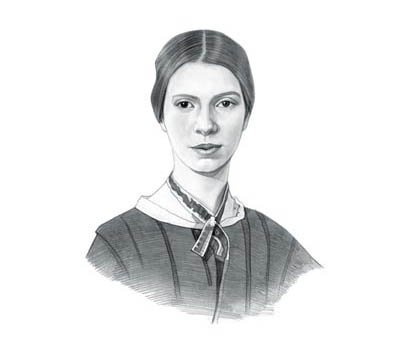An ode to the rifts in spacetime that transport us to the period “when Sappho was a living girl.”
You read every book with your world, not your eyes. Your eyes are lensed with a lifetime’s worth of impressions, relationships, and experiences that only you have had. Nobody ever reads the same book twice. We call literature the eternal, euphoric dialogue between reader and author that each book contains in its margins for every prospective reader to fill with their full being. We participate in the conversation for a variety of reasons — we read to explore the exquisite interconnectedness of things, as did Virginia Woolf; to develop superhuman abilities, as did Galileo; to chart the path to our dreams, as did Jane Goodall; to comfort, empower, and transform ourselves, as did Rebecca Solnit; to better understand ourselves and one another, as did Alain de Botton — but we always come out with our worlds enlarged and clarified by the worlds around us.
Every book, in turn, is the product of the author’s entire self and is imprinted with the fascinating details of their time, location, and personhood that make up their world. A book’s truth—the truth of its author’s world and of every world that has interacted with it since—presses into our hands like an origami of meaning folded from spacetime itself as it travels from hand to hand, from self to self, and from epoch to epoch.
That is what Emily Dickinson who was 33 at the time, examines in a poem titled “In a Library” which was included in the first collection of her poetry, which was published four years after her passing. Dickinson wrote the poem, like all of her verses, without a title.
Her residence was made up of the downstairs library room, which had a significant portion of the family’s original collection, including thick leather-bound books like Paradise Lost, Emerson’s essays, and Clarissa Munger Badger’s botanical artwork, restored to its shelves. They serve as the foundation for the young poet’s aged soul, escorting her into the recesses of collective memory and raising her above the plane of her time to the otherworldly realm where she penned her eternally insightful verses.
A precious — mouldering pleasure — ’tis —
To meet an Antique Book —
In just the Dress his Century wore —
A privilege — I think —
His venerable Hand to take —
And warming in our own —
A passage back — or two — to make —
To Times when he — was young —
His quaint opinions — to inspect —
His thought to ascertain
On Themes concern our mutual mind —
The Literature of Man —
What interested Scholars — most —
What Competitions ran —
When Plato — was a Certainty —
And Sophocles — a Man —
When Sappho — was a living Girl —
And Beatrice wore
The Gown that Dante — deified —
Facts Centuries before
He traverses — familiar —
As One should come to Town —
And tell you all your Dreams — were true —
He lived — where Dreams were born —
His presence is Enchantment —
You beg him not to go —
Old Volume shake their Vellum Heads
And tantalize — just so —
